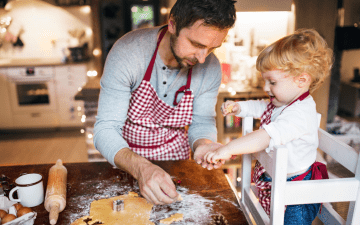Celebrating Employee Holiday Traditions
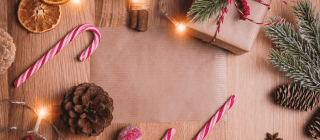
Our more than 400 employees have many different backgrounds and faiths, and some grew up in other parts of the world. We talked with three Blue Cross employees about the different holiday traditions that they enjoy.
Our more than 400 employees have many different backgrounds and faiths, and some grew up in other parts of the world. At this time of year, they celebrate the holiday traditions of their religions and home countries. We talked with three Blue Cross employees about the different holiday traditions that they enjoy.
Slava (Serbia)
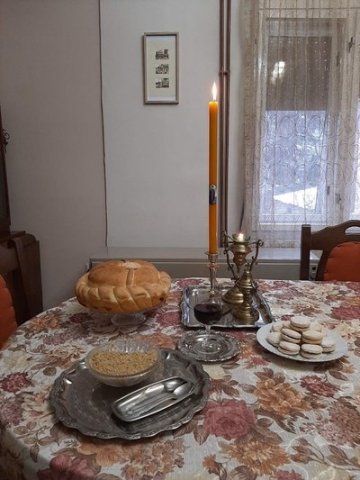
Serbian Orthodox Christians celebrate their family’s patron saint in a holiday called Slava. There are many saints and each has a day of the year when they’re honored. When she was growing up in Serbia, Managed Healthcare Analyst Iva Jugovic Dominguez celebrated Slava on December 19, the day reserved for St. Nicolas, a patron saint for many families.
On the household patron saint’s day, family and friends are invited to gather and have a feast to celebrate life. "Sort of like Thanksgiving, but tied to a specific saint," says Iva.
A lot of different dishes are prepared for the feast including a ritual bread called slavski kolač and žito, a dish made of boiled wheat that is sweetened and mixed with chopped walnuts. Guests who arrive at the house are first offered wheat, as it symbolizes resurrection and the connection between life and death, Iva says. The ritual bread is broken together by the guests.
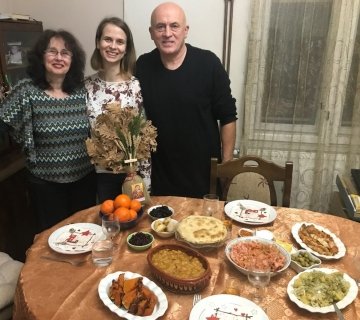
While the patron saint of the household is often passed down from father to son, Iva says that individuals who do not have a Slava to inherit can choose their own saint to honor. She and her husband now celebrate Slava on February 14 in honor of St. Tryphon, the protector of winemakers.
In Serbia, Christmas is celebrated on January 7. On Christmas Eve, the last day of a fast, families gather to enjoy a meatless and dairy-free dinner. On the menu are fish, baked beans, sauerkraut, roasted pumpkin, and dried fruits and nuts. Božićna česnica is a Christmas bread which has a coin placed in the dough. Before dinner, the bread is rotated three times before each person tears off a piece. The person who finds the coin is supposed to have good fortune throughout the year.
Another Christmas Eve tradition is burning an oak log (Badnjak) to summon prosperity and happiness for the household. As most Serbs nowadays live in towns and cities, badnjak is often symbolically represented by a cluster of oak twigs. “Burning of Badnjak is accompanied with a chant, a wish that the happiness and prosperity be as abundant as the sparks” Iva says.
New Year’s Eve (Colombia)
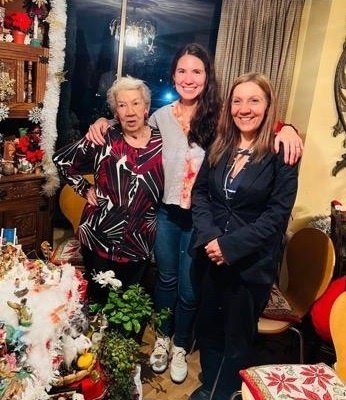
New Year’s Eve is celebrated around the world, but the way it is celebrated in her native country of Colombia is what makes it special for Senior Accountant Tamara Jacobsen, who grew up in the capital city of Bogotá.
The evening starts by donning yellow underwear, which is for prosperity. At midnight, Colombians go for a short walk wearing a backpack, Tamara says, which represents all the journeys they hope to have in the coming year. They put lentils in their pockets to represent money. "You want to travel and have financial stability," she explains.
On this midnight walk, 12 grapes are consumed, one for each month of the year. As a grape is eaten, “you get to make a wish for each month in the following year." However, Tamara says she finds this tradition a little hard to do because “it's a lot of wishes."
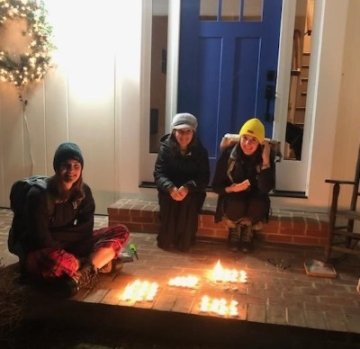
On New Year’s Eve, Colombians will also make a fire close to the entrance of their home and jump over it to represent that they are ready to take on new challenges. Celebrating this tradition is “kind of like walking over fire," she says. At her home in Vermont, Tamara continues the tradition by jumping over candles by her front door. She also walks around her house wearing a backpack and carrying lentils in her pockets. She eats the 12 grapes, and of course, wears yellow underwear. “I give yellow underwear to my family in their Christmas stockings, so they’ll be ready for New
Year’s Eve,” she says.
Colombians celebrate Christmas on the night of December 24, Tamara says. People stay up until midnight, when they receive their presents. Nativity scenes are big Christmas decorations in the country, she says, along with lots of Christmas lights. However, Santa Claus and snowmen are not among the decorations.
For nine days before Christmas, families get together every night. They each bring a food dish to share, “so it's a lot of family and food" during the extended celebration, she says.
Hanukkah (Jewish faith)
For eight days, Jews around the world celebrate Hanukkah, when they light the menorah, eat traditional foods, play games, and give gifts. But Hanukkah isn’t that big a holiday, says Market Strategies Manager Joanna Champion.
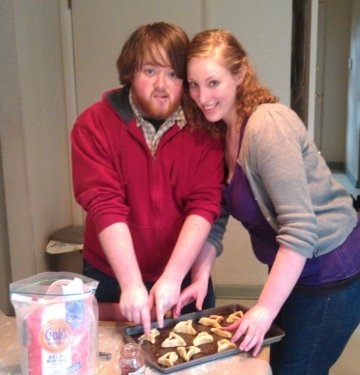
"We celebrate it, but it is not even among the top three most important Jewish holidays," she says. “It kind of has been amplified due to its proximity to Christmas.” More important than Hanukkah for Jews are Rosh Hashanah, the beginning of the Jewish New Year, and Yom Kippur, the day of atonement which follows Rosh Hashanah. Passover is another major holiday.
Hanukkah is usually held in December, but its dates change each year. This year it begins the evening of December 18 and ends the evening of December 26. The festival celebrates a miracle when one day’s worth of lamp oil lasted for eight days.
Hanukkah is one of the more festive holidays in the Jewish faith, Joanna says. In addition to picking out the color of candles to light in the menorah, her childhood memories include playing dreidel for M&Ms, and eating delicious potato pancakes (called latke) and doughnuts (called sufganyot). Both foods are popular at Hanukkah because they are cooked in oil.
Rosh Hashanah and Yom Kippur, which occur in the fall, are more serious Jewish holidays, Joanna says. “It's when you're supposed to take stock and think about the past year, things you've done that weren't great and how you want to improve yourself," she says.
Passover is a Jewish holiday that is rich in tradition. It commemorates the Israelites’ exodus from Egypt and their transition from slavery to freedom. A seder meal is held, during which the story of the exodus is retold. "It's very theatrical, reading aloud the story," says Joanna. The Passover seder features traditional foods like matzah ball soup that Joanna makes from recipes handed down in her family. "The recipes I use are from my mom and her mom."
We are so grateful to our colleagues Iva, Tamara, and Joanna for sharing some of their traditions and fond memories with us.
From all of us at Blue Cross, we wish you a happy and healthy holiday season.



